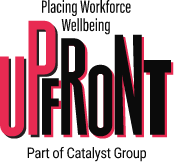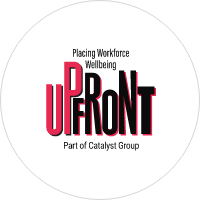Creating a safe and inclusive workplace for factory workers is essential to the success and sustainability of any manufacturing industry. The well-being and empowerment of workers directly impact productivity, innovation, and the overall growth of businesses. Beyond legal compliance, fostering a work environment that prioritises safety, inclusivity, and worker empowerment is a moral and social responsibility. This blog explores the ways in which organisations can strengthen workplace systems, enhance safety protocols, and cultivate inclusivity to build better environments for factory workers.
Introduction: The Need for Safe and Inclusive Workplaces
Factory workers often face challenging conditions, including long hours, physical demands, and potential safety hazards. In recent years, there has been a growing recognition of the importance of creating safe and inclusive workplaces that not only protect workers physically but also promote their mental and emotional well-being. By strengthening workplace systems, companies can establish a framework that empowers workers, reduces risks, and fosters a culture of respect and inclusion.
Strengthening Workplace Systems for Worker Empowerment
To build a better environment for factory workers, one of the first steps is strengthening workplace systems. This means implementing processes and policies that ensure fair treatment, enhance safety, and promote worker engagement at all levels of the organisation.
A robust workplace system includes clear communication channels for reporting issues, transparent decision-making processes, and regular training for employees and managers on workplace policies. These systems allow factory workers to feel supported, valued, and informed about their rights and responsibilities.
Additionally, providing opportunities for workers to develop their skills and take on leadership roles within the factory can further empower them. Offering training programmes on leadership, communication, and conflict resolution not only benefits the individual worker but also enhances overall team cohesion and productivity.
Prioritising Safety: A Non-Negotiable for All Workplaces
Safety is a fundamental right of every worker, and creating safe workplaces is non-negotiable. Factory environments, with their machinery, chemicals, and high-paced operations, often pose numerous hazards. Therefore, companies must invest in comprehensive safety protocols that protect workers from harm.
This begins with conducting regular safety audits to identify potential risks and implementing preventive measures such as personal protective equipment (PPE), proper ventilation, and ergonomic workspaces. Moreover, safety training should be an ongoing priority, ensuring that all workers are aware of the correct procedures for handling equipment and responding to emergencies.
Creating a culture of safety also involves empowering workers to report unsafe conditions without fear of reprisal. When workers know they can speak up about safety concerns, it fosters a proactive approach to maintaining a hazard-free workplace. Strengthening workplace systems to ensure safety creates a more secure and supportive environment, enabling workers to focus on their tasks without worrying about their physical well-being.
Fostering Inclusivity: The Foundation of a Respectful Workplace
Inclusivity is key to building a better work environment. An inclusive workplace recognises and values the diverse backgrounds, experiences, and perspectives of its workers. For factory workers, many of whom come from marginalised or vulnerable communities, creating a safe and inclusive workplace can be life-changing.
To create inclusive workplaces, companies must take intentional steps to address discrimination and ensure equal opportunities for all workers, regardless of their gender, ethnicity, or socioeconomic background. This can be achieved through diversity training for management and staff, the establishment of anti-discrimination policies, and the promotion of a zero-tolerance attitude toward any form of harassment or prejudice.
In addition, flexible work arrangements, parental leave, and access to mental health resources can help support workers from diverse backgrounds, ensuring they feel included and respected in the workplace. By fostering inclusivity, companies not only promote fairness but also unlock the full potential of their workforce, leading to greater innovation and productivity.
Creating a Better Environment for the Empowerment of Factory Workers
Empowerment is central to creating a better environment for factory workers. Workers who feel empowered are more engaged, motivated, and productive. They are also more likely to take initiative, solve problems, and contribute to the overall success of the company.
To empower factory workers, organisations must go beyond basic safety and inclusivity measures. This includes providing workers with opportunities to learn new skills, take on new challenges, and advance in their careers. Offering vocational training programmes, career development workshops, and mentorship opportunities can help workers feel more confident in their roles and motivated to achieve their personal and professional goals.
Moreover, giving workers a voice in decision-making processes can significantly enhance their sense of empowerment. This can be done by establishing worker committees or forums where employees can provide feedback on workplace policies, suggest improvements, and participate in discussions that affect their work environment. When workers feel that their opinions are valued, they are more likely to be invested in the success of the company.
Promoting Mental and Emotional Well-being
Creating a better environment for factory workers also involves prioritising their mental and emotional well-being. Factory work can be stressful and demanding, and it is essential that companies offer support to help workers manage their mental health.
This can be done by providing access to mental health resources, such as counselling services or stress management workshops. Regular check-ins with workers can also help identify potential issues early on and provide support where needed. Additionally, promoting a work-life balance by encouraging reasonable working hours and offering breaks throughout the day can prevent burnout and improve overall worker satisfaction.
Strengthening workplace systems to include mental health support is a crucial aspect of creating an environment where workers feel valued and cared for. When workers know their mental and emotional well-being is a priority, they are more likely to stay with the company long-term, reducing turnover and improving overall morale.
The Role of Leadership in Creating Safe and Inclusive Workplaces
Leadership plays a pivotal role in shaping the culture of a workplace. Factory managers and supervisors must lead by example, demonstrating a commitment to safety, inclusivity, and worker empowerment. Leaders should be approachable and open to feedback, creating an environment where workers feel comfortable raising concerns or suggesting improvements.
Training managers on effective leadership, communication, and conflict resolution can help them build stronger relationships with their teams and foster a more inclusive and supportive work environment. By leading with empathy and integrity, leaders can inspire their workers to perform at their best and contribute to the overall success of the factory.
A Path Forward for Factory Workers
Building a better environment for factory workers is an ongoing process that requires commitment from all levels of an organisation. By strengthening workplace systems, prioritising safety, fostering inclusivity, and empowering workers, companies can create environments where factory workers not only feel safe and valued but also have the opportunity to thrive.
Creating safe and inclusive workplaces is not just about meeting legal obligations—it’s about recognising the fundamental role that factory workers play in the success of the industry and ensuring they have the support they need to reach their full potential. In doing so, companies can build stronger, more resilient workplaces that benefit both workers and the business as a whole.


